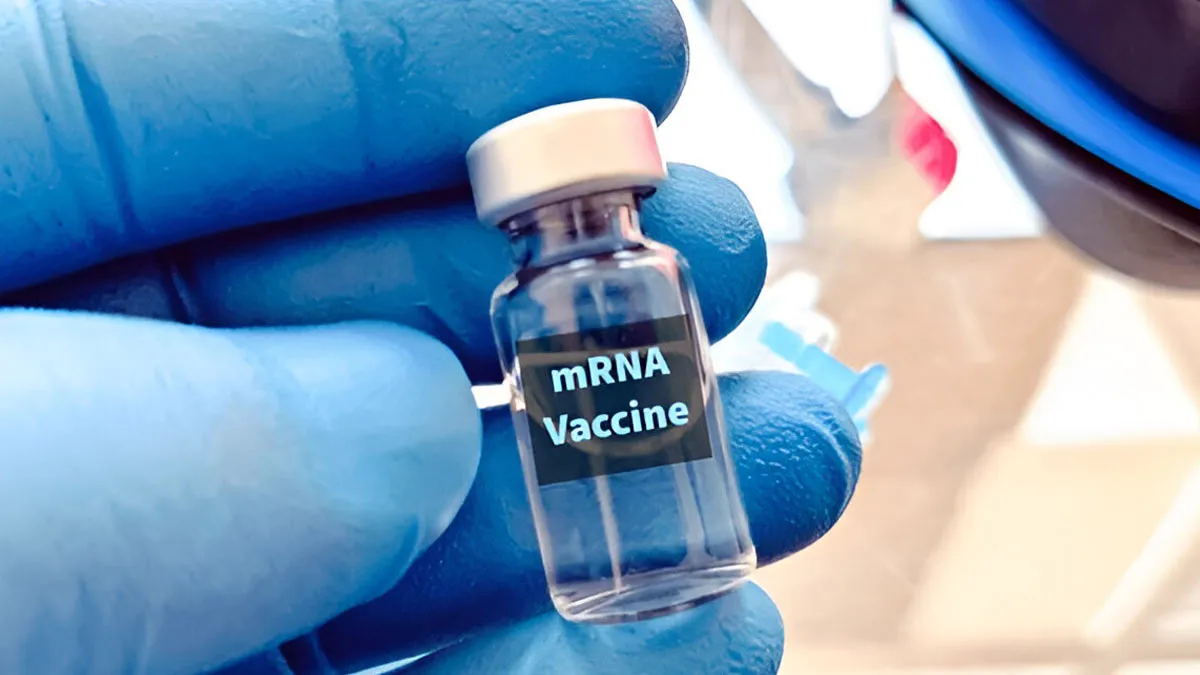
Russia's Federal Medical and Biological Agency (FMBA) recently declared that its mRNA cancer vaccine, EnteroMix, is 'ready for clinical use' after it proved successful in preclinical trials. This statement was made by FMBA chief Veronika Skvortsova while attending the 10th Eastern Economic Forum, which was hosted in Vladivostok between September 3 and 6, 2025.
Table of Content:-
How Does EnteroMix Work?

EnteroMix uses mRNA technology, such as COVID-19 vaccines, but in this case, it trains the body to destroy cancer cells. Every vaccine dose can be tailored to individual patients, depending on their RNA profiles.
What Did Trials Show?
- High efficacy and strong safety: Preclinical studies revealed tumour regression ranging from 60-80%, inhibited tumour development, and enhanced survival rates in animal studies.
- 100% efficacy claims: Certain Russian media outlets claimed '100% efficacy' during preliminary trials—although this pertains only to preclinical environments.
- Safety with repeated doses: FMBA pointed out that even with repeated administrations, the vaccine was highly tolerable in trial models.
Also Read: New Vaccine Prevents Pancreatic And Colorectal Cancer Recurrence: What It Means For Patients?
What Types of Cancer Can It Target?
Initially, EnteroMix is focused on colorectal cancer (cancer of the large intestine). But development is also underway for:
- Glioblastoma, an aggressive brain tumour
- Melanomas, including ocular melanoma (eye cancer)
Why This Matters
If approved, this would potentially be the first individualised mRNA cancer vaccine on the market, providing a more targeted and possibly less harmful therapy than chemotherapy or radiation.
It is a breakthrough in cancer immunotherapy, harnessing the body's own defenses adapted to each patient's tumour type.
Also Read: Does A Covid-19 Vaccine Work For The Immunocompromised? Study
What’s Already Moving Forward?
- Phase I clinical trials underway: In June 2025, Russia started a Phase I trial in St. Petersburg with 48 volunteers who have advanced tumours. The study, conducted by the National Medical Research Radiological Centre, aims mainly to determine safety and toxicity, and has seen very low toxicity so far.
- Regulatory steps in motion: According to later reports, FMBA has submitted registration documents to Russia’s Ministry of Health, advancing the vaccine toward possible use in clinical settings.
- Broader collaboration: Background efforts involved top institutions, including the Radiology Centre and Engelhardt Institute, with the goal of making the vaccine free for patients upon approval.
What Happens Next?
- Regulatory approval from the Ministry of Health, which will determine the pace and scope of rollout.
- Phase II and III trials, pending positive safety outcomes, to confirm real-world efficacy across larger patient groups.
- Potential public access: Russia has pledged that the vaccine will be free for its population, aligning with its precision medicine goals.
Bottomline
Russia’s mRNA-based EnteroMix vaccine, declared ‘ready for clinical use,’ has shown extraordinary results in preclinical testing, strong safety, tumor shrinkage, and even 100% efficacy in some models. With colorectal cancer as its initial target and plans for brain and skin cancer versions underway, the vaccine stands at the brink of regulatory approval and human trials. If successful, it might redefine the future of cancer treatment.
Read Next
Rick Davies, Supertramp Co-Founder, Dies of Multiple Myeloma: What to Know About the Disease
How we keep this article up to date:
We work with experts and keep a close eye on the latest in health and wellness. Whenever there is a new research or helpful information, we update our articles with accurate and useful advice.
Current Version